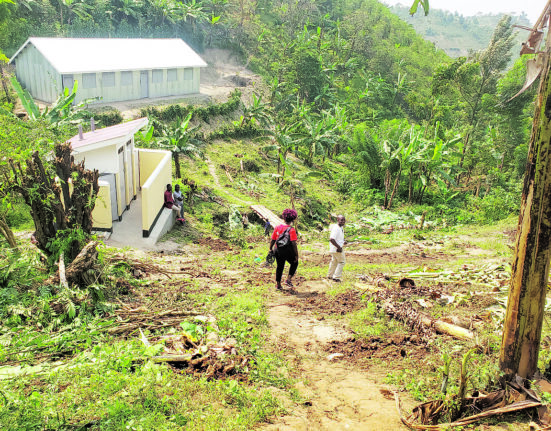By Nelson Kiva
(Published on Wednesday, January 12, 2022)

New Curriculum To Produce Students With Employable Skills
With the reopening of education institutions, secondary students are being introduced to a competence-based curriculum. This month, Mwalimu is exploring various aspects of the new curriculum. In the second article in the series, Nelson Kiva explores the roles of each stakeholder
The National Curriculum Development Centre (NCDC) has indicated that meeting the targets of the competence-based curriculum/ lower secondary curriculum calls for an integrated approach with all stakeholders playing their roles. The lower secondary curriculum which has been introduced to the 2022 Senior One class following the reopening of schools effects a paradigm shift from theory-based assessment to skills evaluation.
The curriculum reforms as contained in the January 23, 2020 circular by the NCDC, target enhanced quality of education to produce a secondary school graduate with employable skills. This will help mitigate the high unemployment rate which stood at 2.44% in 2020, which is an increase from 0.72% in 2019, according to government data.
In addition, experts explain that the curriculum content was reduced to address overload, foster learner-centred pedagogy, competence-based approach and criterion-referenced assessment, among others.
At the centre of the curriculum’s implementation are the headteachers, according to the NCDC executive director, Grace Baguma.
Baguma says headteachers are the primary supervisors in ensuring effective implementation of the curriculum. They also play a co-ordination role among the different stakeholders who include the learners, teachers and parents.
“We want to see this curriculum succeeding in order to enable the country achieve its development targets,” she says.
Background
Baguma says the curriculum review process which started in 2018, was not only informed by the need to early equip a secondary school learner with employable skills, but it is part of the broader education framework to align with the country’s development targets such as the Vision 2040.
Quality education as portrayed in Vision 2040 is seen as one of the key components for developing the human resource necessary to increase the country’s economic competitiveness, support technological advancement and contribute to the overall well-being and health of the population.
Violet Isoke, a secondary school teacher in Hoima district, says the goodness of the competence-based curriculum is teaching and learning are implemented practically including exposure to places of work and businesses to see how things are physically done.
“For instance if you are conducting an entrepreneurship class, you take them to the market or any business and they see how entrepreneurs do it and they come back a lone and make their own notice depending on how they have understood.
And if it is Mathematics, you relate it to everyday life and they see how it can be applied,” she says.

Role Of School Administrators, Teachers
Baguma says school administrators are expected to ensure projects, other facilities such as textbooks and gadgets to use in learning are in place given the fact that learning will be more practical than was the case in the past.
For instance, subjects such as agriculture will require using outdoor spaces with the learners implementing what they have been taught in class.
With the paradigm shift from rote learning to pass exams to aiding learners, understanding of concepts and apply them, Baguma says teachers are now transiting into facilitators.
“It will no longer be a matter of dictating notes and explaining but they will now be required to provide tips to learners, engage discussions and leave to find solutions on their own,” Baguma says.
Teachers will also be required to carry out daily assessments and follow-up with the parents in regard to the learners’ performance. The same assessment reports will be used by the school and the Uganda National Examination Board (UNEB).
Noteworthy is that with the competence-based curriculum, continuous assessment will account for 20% of the child’s score in the Uganda Certificate of Education. The other 80% will come from the final assessments conducted by the UNEB.
New Vision Supports Competence-Based Curriculum
To support the implementation of the competence-based curriculum, the New Vision starting this month is publishing related lesson materials. The lessons are targeting students in Senior One and Two and are published from Monday to Saturday.
The eight core subjects that New Vision is publishing include mathematics, English, physics, chemistry, biology, Kiswahili, geography, and entrepreneurship.
The competence-based curriculum seeks to ensure that teachers and learners relate textbook knowledge to real life. Therefore, the lessons involve several activities in the various subjects for the learners to perform, relate to their communities and base on to solve problems, instead of memorising teachers’ notes.
Textbooks
Working with a team of expert teachers, Vision Group has published textbooks highly ranked by the education ministry for the new competence-based curriculum and they will be at all our sales outlets by the end of this month.
To book newspapers and textbooks, WhatsApp: 0774605377
Parents Have A Role To Play
The National Curriculum Development Centre executive director, Grace Baguma, says parents or guardians also have a role of a facilitator in implementing the curriculum.
“They are expected to engage, supervise and check on their children when it comes to subjects such as agriculture where a parent can engage a child at all stages of planting, weeding, harvesting and storage,” she said.
The parents in subjects such as information, communication and technology, will be required to provide gadgets to use by their children. Baguma says this will be on top of playing a follow-up with the school administration and teachers to aid effective learning process.
Deogracious Ojok, a teacher at Trinity Senior Academy Bwebajja, says parents will be required to provide the required learning materials.
“For instance, every learner should have instructional books to use for each of the 11 compulsory subjects to supplement the ones provided by government and the schools,” he says.
On top of being required to provide some key learning materials, Ojok said parents will be required to provide information to the learners. “For example, if learners are going to make yogurt in biology or candles in entrepreneurship, parents will be required to avail those materials. Some schools are going to charge project fees if the curriculum’s intentions are to be realised. If not, schools will increase fees to cover the cost,” he said.
He said parents will also be required to take part in the assessment whose main focus is on attitude change of the learners.
That is parents have to review the assessment reports, work with the learner and school where there is need for support to improve the outcomes.








Leave feedback about this